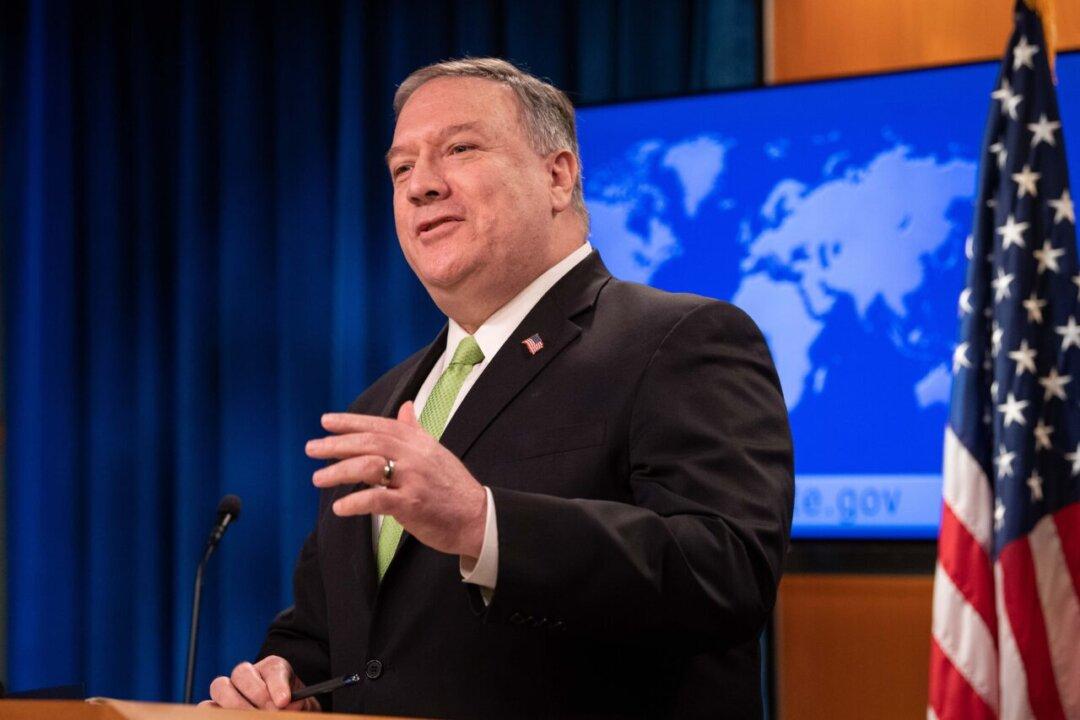Secretary of State Mike Pompeo on Wednesday rejected what he called false comparisons between America’s law enforcement response to the protests sparked by the police-custody death of George Floyd, and the brutal crackdowns on free speech and assembly by authoritarian regimes.
Floyd’s death during an arrest that saw a Minneapolis police officer, since fired and criminally charged, kneel on his neck for nearly nine minutes, sparked widespread protests and spurred debate over reform of policing practices. Some demonstrations degenerated into looting and violence, which was at times met with a decisive law enforcement response.





